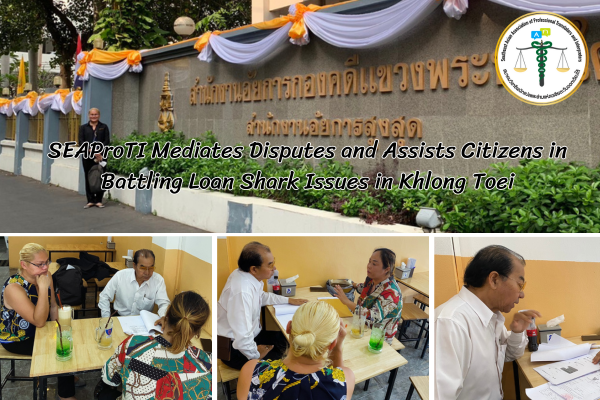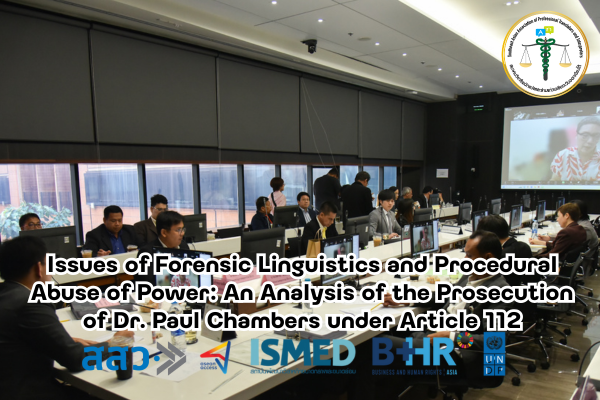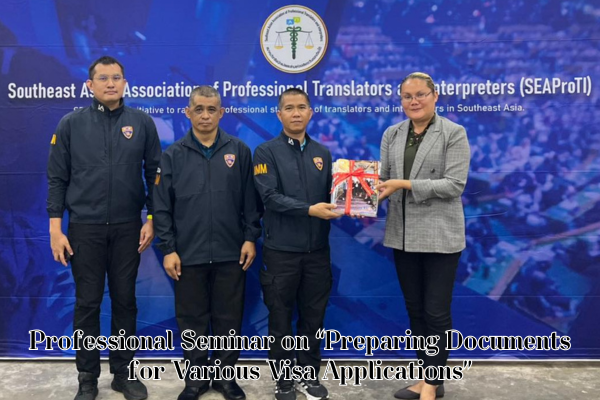Why Can’t Thailand Solve the Problem of Undervaluing Freelancers? A Deep Dive into an Endless Cycle
12 March 2025, Bangkok – In a world where freelancing has become a popular choice for the modern generation, especially in Thailand, the dream of being your own boss often comes with freedom and flexibility. But why do so many freelancers face the nightmare of relentless undervaluation? Whether you’re a translator, designer, or creator, you’ve likely heard the soul-crushing questions: “Why so expensive?” or “Can’t you lower it more?”—even when the rate is already so low it barely covers the effort. This issue has deep roots in Thailand, and it seems impossible to fix. So, what’s really going on? Let’s break it down in a way that’s engaging and easy to digest!
1. The “Bargain or Bust” Culture No One Can Escape
If you’ve ever been to a Thai market and watched aunties haggle mangoes from 50 baht a kilo down to 30, you’ll get it: bargaining is in Thailand’s DNA. It’s not just about shopping—it spills over into hiring too. Some employers see driving down prices as a victory, a sign of savvy negotiation, forgetting that paying 500 baht for a 10-page translation is basically asking someone to work for free! This culture presents both advantages and disadvantages: it can be enjoyable to engage in haggling, but it can be distressing to be the target of haggling.
2. Too Many Workers, Too Few Good Jobs: A Price War With No Winners
Picture an online marketplace swarming with thousands of freelancers, all vying to translate English to Thai. Some freelancers reduce their rates to 50 satang per word in order to secure a gig on a busy day. The harsh reality? There are far more willing workers than there are decent, well-paying jobs. The outcome is a fierce competition of prices, in which no one truly emerges victorious—perhaps with the exception of the employer who is smirking in the background.
3. “Freelancing = Something You Do When You’re Free” Misconception
To some, freelancing still isn’t “real work” like a 9-to-5 office job. There’s this idea that translators just tap Google Translate a few times and call it a day—so why pay a premium? The truth is, freelancing demands skill, brainpower, and time, just like any other profession. But this mindset keeps freelancers undervalued and their rates crushed.
4. No Rules, No Standards: Pay Whatever You Feel Like
In other countries, some industries have associations setting minimum rates—like translators in Europe who might have guidelines of 0.08-0.12 euros per word. In Thailand? Nada. There’s no clear benchmark or enforcement, so employers set rates however they please. They might offer 1,000 baht for a job worth 5,000 and still say, “That’s expensive!” Without a standard, freelancers are stuck—take it or leave it.
5. An Economy Squeezing Both Sides
Let’s not forget: Thailand’s cost of living and average income are still low compared to many countries. Employers might argue, “This is all the budget I’ve got,” while freelancers accept cheap gigs because rent, gas, and coffee bills don’t wait. It’s a vicious cycle where both sides feel trapped, but everyone ends up sinking together.
Is There a Way Out—or Are We Stuck Forever?
Solving this requires a multi-pronged approach. Freelancers could band together to set minimum rates and muster the courage to say no to unfair offers (easier said than done). Employers need to realize that “pay peanuts, get monkeys” isn’t just a saying—it’s a proven fact. The government or private organizations could step in with standards and education. But the real game-changer? Shifting mindsets—both freelancers’ self-worth and society’s view of their work.
Can Thailand break free from this undervaluation trap? The answer’s still fuzzy. However, it’s evident that this issue will persist as long as people perceive freelancing as a leisure activity. What’s the worst undervaluing experience you’ve had that made you want to flip a table? Share it—I’d love to hear, and maybe we can brainstorm a fix together!
SEAProTI’s certified translators, translation certification providers, and certified interpreters:
The Southeast Asian Association of Professional Translators and Interpreters (SEAProTI) has officially announced the criteria and qualifications for individuals to register as “Certified Translators,” “Translation Certification Providers,” and “Certified Interpreters” under the association’s regulations. These guidelines are detailed in Sections 9 and 10 of the Royal Thai Government Gazette, issued by the Secretariat of the Cabinet under the Office of the Prime Minister of the Kingdom of Thailand, dated July 25, 2024, Volume 141, Part 66 Ng, Page 100.
To read the full publication, visit the Royal Thai Government Gazette
ทำไมเมืองไทยแก้ปัญหาการกดราคาฟรีแลนซ์ไม่ได้ เจาะลึกวงจรที่ไม่มีวันจบ
12 มีนาคม 2568, กรุงเทพ – ในโลกที่ฟรีแลนซ์กลายเป็นทางเลือกยอดนิยมของคนยุคใหม่ โดยเฉพาะในประเทศไทย ภาพฝันของการเป็น “นายตัวเอง” มักมาพร้อมอิสระและความยืดหยุ่น แต่ทำไมหลายคนถึงต้องเผชิญหน้ากับฝันร้ายอย่างการถูกกดราคาไม่หยุดหย่อน? ไม่ว่าจะเป็นนักแปล นักออกแบบ หรือครีเอเตอร์ ทุกคนเคยเจอคำถามชวนปวดใจอย่าง “ทำไมแพงจัง?” หรือ “ลดได้อีกไหม?” ทั้งที่ราคานั้นแทบจะต่ำจนไม่คุ้มเหนื่อยแล้ว ปัญหานี้ฝังรากลึกในเมืองไทยมานาน และดูเหมือนจะแก้ไม่ได้เสียที—เพราะอะไรกันแน่? มาดูกันแบบเจาะลึก แต่ไม่น่าเบื่อ!
1. วัฒนธรรม “ต่อให้ตาย” ที่ไม่มีใครยอมแพ้
ถ้าคุณเคยไปตลาดแล้วเห็นป้า ๆ ต่อราคามะม่วงจากกิโลละ 50 เหลือ 30 คุณคงเข้าใจดีว่า “การต่อรอง” คือ DNA ของคนไทย มันไม่ใช่แค่การซื้อของ แต่ยังลามมาถึงการจ้างงานด้วย นายจ้างบางคนมองว่าการกดราคาคือชัยชนะ เป็นการแสดงฝีมือการเจรจา โดยลืมไปว่าการจ่าย 500 บาทสำหรับงานแปล 10 หน้ามันแทบไม่ต่างจากการขอให้คนทำงานฟรี! วัฒนธรรมนี้กลายเป็นดาบสองคม—สนุกตอนต่อ แต่เจ็บตอนรับงาน
2. คนเยอะ งานน้อย: สงครามราคาที่ไม่มีผู้ชนะ
ลองนึกภาพตลาดออนไลน์ที่เต็มไปด้วยฟรีแลนซ์นับพันคน แข่งกันเสนอราคางานแปลจากภาษาอังกฤษเป็นไทย บางคนยอมลดเหลือคำละ 50 สตางค์ เพียงเพื่อให้ได้งานในวันที่ท้องหิว ความจริงคือมีคนพร้อมทำงานมากเกินกว่าจำนวนงานดี ๆ ที่มีอยู่ ผลลัพธ์? ทุกคนกลายเป็นเหยื่อของสงครามราคา ที่สุดท้ายไม่มีใครได้กำไร แต่นายจ้างยิ้มกริ่ม
3. “ฟรีแลนซ์ = ว่าง ๆ ก็ทำได้” ความเข้าใจผิดที่ฝังลึก
ในสายตาคนบางกลุ่ม งานฟรีแลนซ์ยังไม่ใช่ “งานจริง” เหมือนงานประจำ 9 โมงเช้าถึง 5 โมงเย็น บางคนคิดว่านักแปลแค่นั่งกด Google Translate สองสามทีก็เสร็จแล้ว จะจ่ายแพงทำไม? ความจริงคืองานแปลต้องใช้สมอง ใช้ทักษะ และใช้เวลาไม่ต่างจากอาชีพอื่น แต่ทัศนคตินี้ทำให้ฟรีแลนซ์ถูกมองข้าม และราคางานถูกกดจนแทบไม่เหลืออะไร
4. ไม่มีกฎ ไม่มีเกณฑ์: ใครจะจ่ายเท่าไหร่ก็ได้
ในต่างประเทศ บางวงการมีสมาคมกำหนดอัตราค่าจ้างขั้นต่ำ เช่น นักแปลในยุโรปอาจมี guideline ว่าราคาควรอยู่ที่ 0.08-0.12 ยูโรต่อคำ แต่ในไทยล่ะ? ไม่มี! นายจ้างเลยตั้งราคาตามใจฉัน บางทีจ่าย 1,000 บาทสำหรับงานที่ควรได้ 5,000 แล้วยังบอกว่า “แพงแล้วนะ” เพราะไม่มีมาตรฐานให้ยึด ฟรีแลนซ์เลยต้องยอม—or walk away.
5. เศรษฐกิจที่บีบคั้นทั้งสองฝ่าย
อย่าลืมว่าเมืองไทยยังมีค่าครองชีพและรายได้เฉลี่ยที่ต่ำเมื่อเทียบกับหลายประเทศ นายจ้างบางรายบอกว่า “งบมีแค่นี้จริง ๆ” ขณะที่ฟรีแลนซ์ก็ต้องยอมรับงานราคาถูกเพราะค่าเช่าห้อง ค่าน้ำมัน ค่ากาแฟยังต้องจ่ายทุกเดือน มันกลายเป็นวงจรที่ทั้งสองฝ่ายรู้สึกว่า “ไม่มีทางเลือก” แต่สุดท้ายก็พากันจม
ทางออกอยู่ไหน หรือไม่มีจริง
ถ้าจะแก้ปัญหานี้ ต้องเริ่มจากหลายทางพร้อมกัน ฟรีแลนซ์อาจต้องรวมตัวกันตั้งราคาขั้นต่ำ และกล้าปฏิเสธงานที่ไม่ยุติธรรม (ถึงจะยากในทางปฏิบัติ) ส่วนนายจ้างต้องเข้าใจว่า “จ่ายน้อยได้งานห่วย” ไม่ใช่แค่คำขู่ แต่เป็นความจริงที่พิสูจน์มาแล้วนับครั้งไม่ถ้วน รัฐหรือองค์กรเอกชนอาจช่วยได้ด้วยการสร้างมาตรฐานและให้ความรู้ แต่ที่สำคัญที่สุดคือการเปลี่ยนมุมมอง—ทั้งของตัวฟรีแลนซ์เองและสังคม
เกี่ยวกับนักแปลรับรอง ผู้รับรองการแปล และล่ามรับรองของสมาคมวิชาชีพนักแปลและล่ามแห่งเอเชียตะวันออกเฉียงใต้
สมาคมวิชาชีพนักแปลและล่ามแห่งเอเชียตะวันออกเฉียงใต้ (SEAProTI) ได้ประกาศหลักเกณฑ์และคุณสมบัติผู้ที่ขึ้นทะเบียนเป็น “นักแปลรับรอง (Certified Translators) และผู้รับรองการแปล (Translation Certification Providers) และล่ามรับรอง (Certified Interpreters)” ของสมาคม หมวดที่ 9 และหมวดที่ 10 ในราชกิจจานุเบกษา ของสำนักเลขาธิการคณะรัฐมนตรี ในสำนักนายกรัฐมนตรี แห่งราชอาณาจักรไทย ลงวันที่ 25 ก.ค. 2567 เล่มที่ 141 ตอนที่ 66 ง หน้า 100 อ่านฉบับเต็มได้ที่: นักแปลรับรอง ผู้รับรองการแปล และล่ามรับรอง
เมืองไทยจะหลุดพ้นจากวงจรการกดราคาได้ไหม? คำตอบอาจยังไม่ชัดเจน แต่ที่แน่ ๆ คือ ถ้าเรายังมองว่างานฟรีแลนซ์เป็นแค่ “งานว่าง ๆ” ปัญหานี้คงอยู่กับเราต่อไปอีกนาน คุณเคยเจอประสบการณ์กดราคาแบบไหนที่ทำให้อยากตบโต๊ะบ้าง? แชร์มาได้เลย—บางทีเราอาจหาทางออกด้วยกันได้!
























